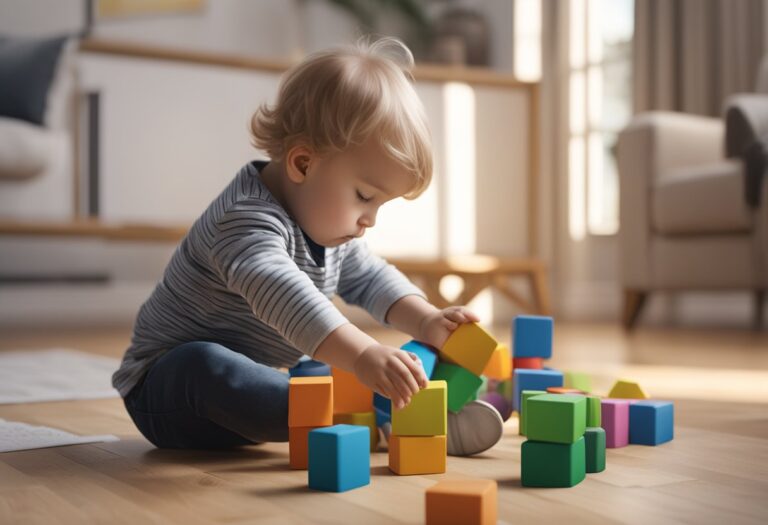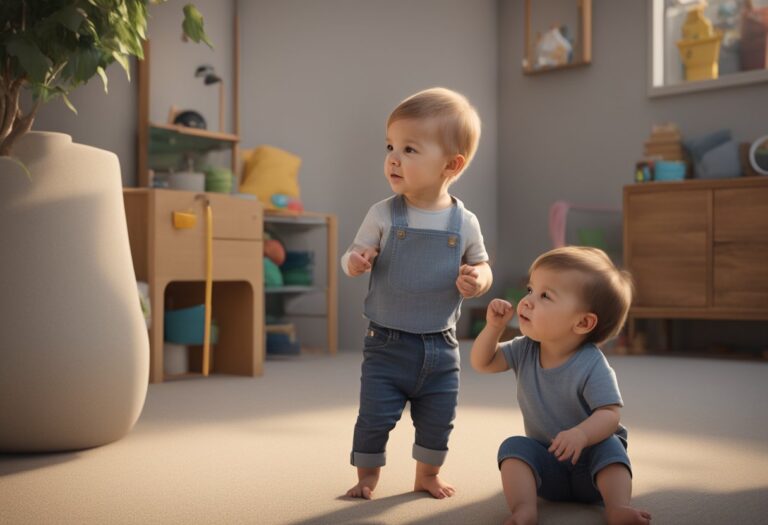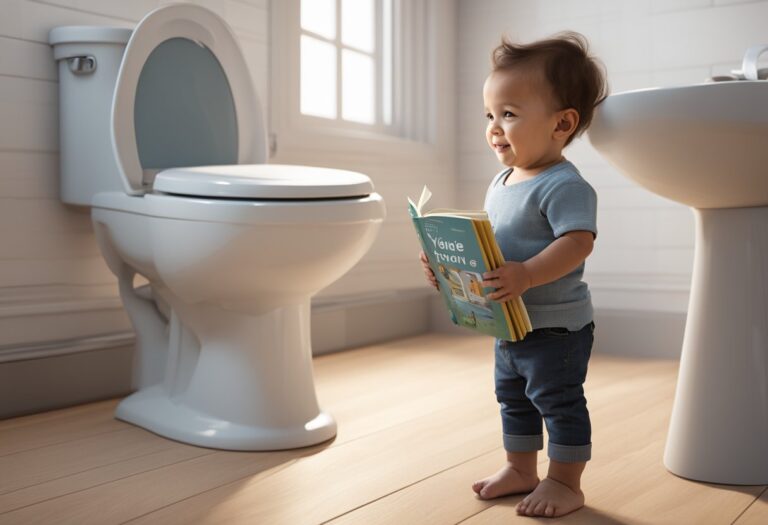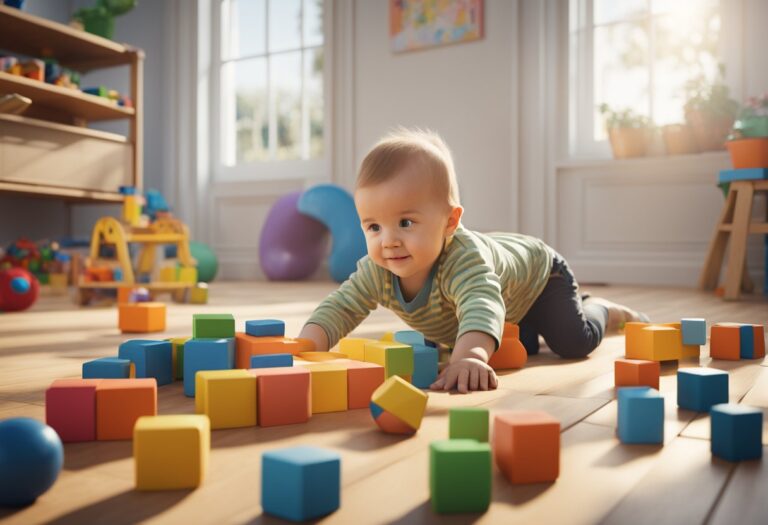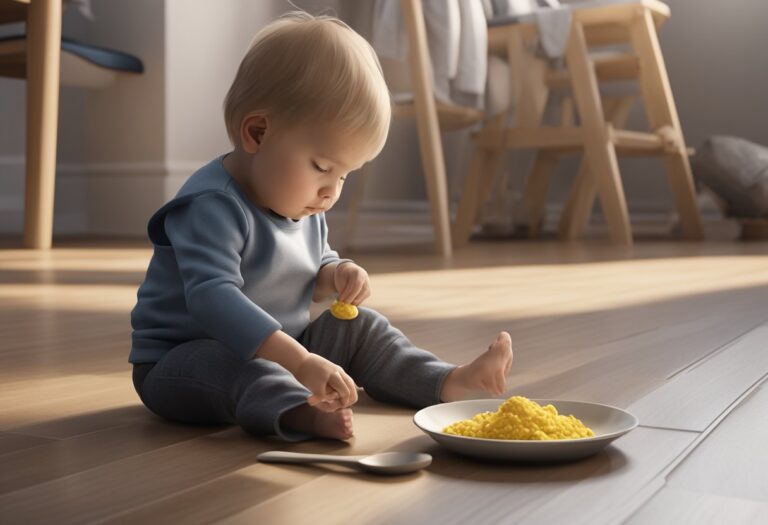Boosting Social Skills in Toddlers: Tips & Insight
Social skills play a vital role in a toddler’s development, shaping their ability to communicate, form relationships, and navigate the world around them. From sharing toys to taking turns, these foundational skills lay the groundwork for future social interactions and emotional well-being.
Understanding and fostering social skills in young children is essential to ensure their success in various social settings, both now and as they grow older. By cultivating these skills, toddlers gain the tools they need to navigate challenging social situations, build positive relationships, and thrive in their social environment.
This comprehensive guide offers valuable insights and practical tips on how to boost social skills in toddlers. We will explore the key factors that influence toddler social development, the benefits of teaching social skills at an early age, and age-appropriate activities to enhance their social interactions. Additionally, we will discuss strategies for creating a socially supportive environment and fostering positive peer interactions, as well as managing challenging social situations with empathy and guidance.
Join us on this journey to unlock the secrets of nurturing social skills in toddlers. Together, we can lay the foundation for a lifetime of successful social development.
Understanding Toddler Social Development
During early childhood, social emotional development plays a crucial role in shaping a child’s social skills. As toddlers navigate the world around them, they develop the ability to communicate, engage in interactions, and form relationships with others. Understanding the various aspects of toddler social development can provide valuable insights into fostering their social skills effectively.
One key aspect of toddler social development is social emotional development. This refers to a child’s ability to recognize and understand their own emotions and those of others, as well as regulate and express these emotions appropriately. Fostering social emotional development in early childhood is essential for building a strong foundation for healthy social interactions.
During the toddler years, children learn how to engage and interact with others through observation, imitation, and practice. They begin to develop basic social skills such as sharing, taking turns, and showing empathy. These skills are learned and shaped through various experiences and interactions with parents, caregivers, and peers.
It is important to note that each child’s social development may progress at their own pace, influenced by factors such as individual temperament, family dynamics, and the social environment. Some children may naturally excel in social interactions, while others may require additional support and guidance.
By understanding the different elements of toddler social development, parents, caregivers, and educators can effectively support and promote the development of social skills in young children. Providing opportunities for social interactions, modeling positive social behavior, and creating an inclusive and supportive environment are all essential in fostering healthy social development during early childhood.
The Benefits of Teaching Social Skills to Toddlers
Teaching social skills to toddlers is crucial for their overall development and future success in various social settings. By promoting social skills in early childhood, parents, caregivers, and educators can provide toddlers with a strong foundation for healthy communication, positive relationships, and emotional well-being.
One of the key benefits of teaching social skills to toddlers is the improvement in their overall well-being. When toddlers are equipped with effective social skills, they are more likely to have positive social experiences, develop strong friendships, and experience a greater sense of belonging and happiness.
Furthermore, teaching social skills to toddlers enhances their communication skills. As toddlers learn to interact effectively with others, they develop important communication skills such as active listening, expressive language, and non-verbal cues. These skills not only enable them to express their thoughts and emotions clearly but also facilitate understanding and empathy in their interactions with others.
Moreover, fostering social skills in early childhood sets the stage for future success in various social settings. As toddlers grow and progress in their social skills development, they become better equipped to navigate different social environments, such as school, extracurricular activities, and community interactions. This not only facilitates their social integration but also enhances their ability to form meaningful connections and collaborate with others.
“Teaching social skills to toddlers from an early age is like laying the foundation for their future social interactions and relationships. It empowers them with the necessary tools to navigate and thrive in a socially diverse world.”
Additionally, teaching social skills to toddlers helps them develop essential life skills, such as problem-solving and conflict resolution. By learning effective ways to handle challenging social situations, toddlers gain valuable skills for managing conflicts, negotiating, and finding mutually beneficial resolutions. These skills are essential for their development and contribute to their emotional intelligence and resilience.
To summarize, teaching social skills to toddlers offers a multitude of benefits. It promotes their overall well-being, enhances their communication skills, sets the stage for future social success, and fosters essential life skills. By investing in teaching social skills to toddlers, parents, caregivers, and educators create a solid foundation for their continued social development and prepare them for a lifetime of positive social interactions and relationships.
Key Social Skills to Focus on in Toddlers
Fostering social skills in toddlers is crucial for their overall development and future success in social interactions. By enhancing toddler communication skills and promoting toddler socialization, parents, caregivers, and educators can lay a strong foundation for their social-emotional well-being. Here are some key social skills that should be nurtured in toddlers:
Effective Communication
Encouraging toddlers to express themselves verbally and non-verbally is essential in developing their communication skills. Teaching them to use words, gestures, and facial expressions helps them convey their thoughts, needs, and emotions, fostering positive social interactions and understanding.
Sharing
Learning to share is an important social skill that promotes cooperation and empathy. By teaching toddlers the value of sharing toys, snacks, and other resources with their peers, they develop a sense of generosity, patience, and the ability to take turns.
Turn-Taking
Toddlers need to understand the concept of turn-taking to engage in reciprocal and cooperative play. By encouraging them to wait for their turn and giving others the opportunity to participate, toddlers learn patience, respect, and the art of sharing the spotlight.
Empathy
Developing empathy is vital for toddlers to understand and respond to the feelings and needs of others. Through modeling and guidance, toddlers can learn to identify emotions, show compassion, and offer support to their peers, fostering a sense of community and connection.
Problem-Solving
Teaching toddlers problem-solving skills enables them to navigate conflicts and challenges in social interactions. By encouraging them to think critically, consider alternative perspectives, and find fair resolutions, toddlers develop the ability to resolve conflicts peacefully and collaborate effectively.
“Nurturing these key social skills in toddlers sets the stage for positive social interactions and lays the groundwork for their future growth and development.” – Dr. Emily Johnson, Child Psychologist
By prioritizing the development of these essential social skills, parents, caregivers, and educators can empower toddlers to thrive in various social settings and build meaningful relationships. The table below summarizes the key social skills and their significance in toddler socialization:
| Social Skills | Significance in Toddler Socialization |
|---|---|
| Effective Communication | Enables toddlers to express themselves and understand others, fostering meaningful interactions. |
| Sharing | Promotes cooperation, patience, and empathy among toddlers, fostering a sense of community. |
| Turn-Taking | Encourages reciprocity, patience, and respect in social interactions, leading to smoother play experiences. |
| Empathy | Fosters understanding, compassion, and connection with others, enhancing social bonds. |
| Problem-Solving | Equips toddlers with the ability to navigate conflicts and challenges, promoting cooperation and collaboration. |
Creating a Socially Supportive Environment
Building a socially supportive environment is crucial for fostering social skills in young children and promoting their social development in early childhood. Parents, caregivers, and educators play a vital role in creating a nurturing and inclusive space that encourages social interaction, empathy, and cooperation among toddlers.
“A socially supportive environment provides the foundation for children to develop strong social skills and build positive relationships with others,” explains Dr. Emily Johnson, a child psychologist and early childhood expert. “By creating an environment that prioritizes social interaction and emotional connection, we foster a sense of belonging and help children develop the essential skills needed to navigate social situations.”
“Children learn social skills by observing and interacting with the world around them. When they are surrounded by positive role models, given opportunities for meaningful social interactions, and taught how to express empathy and understanding, they are more likely to develop strong social skills,” adds Dr. Johnson.
Here are some strategies that parents, caregivers, and educators can implement to create a socially supportive environment for toddlers:
- Encourage Play: Provide ample opportunities for unstructured playtime where toddlers can freely engage with their peers and practice social skills such as sharing, taking turns, and cooperating.
- Model Positive Behavior: Adults should model positive social skills, such as kindness, empathy, and effective communication, in their interactions with toddlers and others.
- Promote Inclusive Practices: Ensure that all children are included and valued in social settings, regardless of their abilities, background, or interests. Encourage inclusive play and foster a sense of belonging for every child.
- Facilitate Communication: Create an environment that encourages open communication and active listening. Provide opportunities for toddlers to express their thoughts and feelings, and validate their emotions.
- Teach Problem-Solving Skills: Help toddlers develop problem-solving skills by providing guidance and support when faced with social challenges. Encourage them to brainstorm solutions and explore different perspectives.
- Establish Positive Routines: Develop consistent routines and rituals that promote predictability and a sense of security. This helps toddlers feel more comfortable in social settings and supports their social-emotional development.
“By implementing these strategies, parents, caregivers, and educators can create an environment that fosters social skills in young children and promotes their overall social development in early childhood,” concludes Dr. Johnson. “Remember, the foundation of strong social skills begins with a supportive and inclusive environment.”
| Benefits of a Socially Supportive Environment | Strategies for Creating a Socially Supportive Environment |
|---|---|
| Enhances social skills development | Encourage play |
| Promotes empathy and understanding | Model positive behavior |
| Fosters a sense of belonging | Promote inclusive practices |
| Supports effective communication | Facilitate communication |
| Develops problem-solving skills | Teach problem-solving skills |
| Provides comfort and security | Establish positive routines |
Age-Appropriate Activities to Enhance Social Skills
Encouraging social skills development in toddlers through age-appropriate activities is a crucial aspect of their overall growth and well-being. By engaging in interactive and play-based experiences, toddlers can learn important social skills while having fun and building strong relationships with their peers. Here are some stimulating activities that promote social skills in early childhood:
- Sharing Circle: Create a circle with a group of toddlers and provide them with a few toys or objects. Encourage them to take turns sharing the items and expressing why they enjoy playing with them. This activity helps promote sharing, turn-taking, and communication skills among toddlers.
- Cooperative Art: Engage toddlers in collaborative art projects where they work together to create something. This could involve finger painting, collage-making, or even building with blocks. Through this activity, toddlers learn to collaborate, communicate, and problem-solve as they work towards a common goal.
- Story Time: Read stories that emphasize empathy and kindness towards others. After reading, engage toddlers in discussions about the characters’ feelings and encourage them to share their own experiences. This activity helps develop empathy, emotional understanding, and communication skills.
- Role-Play: Provide dress-up clothes and props to encourage imaginative play. Toddlers can pretend to be different characters, such as doctors, teachers, or chefs, and engage in pretend play scenarios. This activity nurtures creativity, cooperation, and problem-solving skills.
- Outdoor Games: Organize simple outdoor games, such as a treasure hunt or a beanbag toss. These activities promote physical activity while encouraging social interaction, turn-taking, and teamwork among toddlers.
Remember to adapt these activities to individual toddler needs, taking into account their interests, abilities, and developmental stage. By incorporating these social skills activities for toddlers into their daily routines, parents, caregivers, and educators can effectively promote social skills in early childhood and set a strong foundation for positive social interactions throughout their lives.
Encouraging Positive Peer Interactions
Positive peer interactions play a vital role in toddler social development, fostering the growth of essential social skills in young children. Parents and caregivers can actively encourage and facilitate these interactions, providing their little ones with valuable opportunities to practice and refine their social skills. Here are some effective strategies:
1. Arrange Playdates
Organizing playdates with other toddlers is an excellent way to promote positive peer interactions. These playdates allow children to socialize, cooperate, and engage in collaborative play. Parents can create a supportive environment by offering toys and activities that encourage sharing, turn-taking, and problem-solving.
2. Engage in Structured Group Activities
Participating in structured group activities, such as music classes or toddler yoga sessions, offers toddlers the chance to interact with peers in a guided setting. These experiences not only foster social skills but also provide opportunities for learning and development in various domains.
3. Model Positive Social Behavior
Parents and caregivers serve as important role models for toddlers. By demonstrating positive social behavior, such as kindness, empathy, and respecting boundaries, adults can create an environment that encourages toddlers to emulate these behaviors. Children often learn best by observing and imitating those around them.
Encouraging positive peer interactions greatly contributes to toddler social development. Through playdates, structured activities, and modeling positive social behavior, parents and caregivers can provide valuable opportunities for children to practice and enhance their social skills, fostering a strong foundation for future social interactions.
Remember, social development is a gradual process, and each child progresses at their own pace. It is essential to provide consistent support, patience, and guidance as toddlers navigate the intricacies of social interactions.
| Benefits of Encouraging Positive Peer Interactions | Strategies for Encouraging Positive Peer Interactions |
|---|---|
| Promotes social skill development | Arrange playdates |
| Enhances communication and problem-solving skills | Engage in structured group activities |
| Fosters empathy and cooperation | Model positive social behavior |
Managing Challenging Social Situations
When navigating the world of toddlerhood, parents and caregivers often find themselves facing challenging social situations. It is essential to approach these moments with patience, understanding, and the intention to promote positive behavior and teach appropriate social skills. By implementing strategies specifically tailored to toddlers, you can help them navigate conflicts, tantrums, and other common social challenges.
Conflict Resolution
Conflicts may arise when toddlers are confronted with sharing toys, taking turns, or even simple misunderstandings. Teaching social skills to toddlers, such as problem-solving and empathy, can help them navigate and resolve conflicts successfully. Encourage open communication, active listening, and modeling positive behaviors to guide them through conflict resolution. By doing so, you promote a harmonious social environment and help build essential skills for future interactions.
Dealing with Tantrums
Toddlers often express their frustrations or emotions through tantrums. It is essential to remain calm and provide a supportive environment during these challenging moments. Engage in active observation to identify triggers and implement preventive strategies. Distracting the child, offering alternatives, or providing comforting reassurance can help defuse tantrums and redirect their focus toward positive social interactions.
Fostering Emotional Regulation
Teaching toddlers how to manage their emotions is crucial during social interactions. Promote emotional recognition and regulation by using calming techniques such as deep breathing exercises, counting, or offering a quiet space to self-soothe. Reinforce positive behaviors and encourage toddlers to express their emotions appropriately, helping them develop essential emotional intelligence and enhancing their social skills.
“By implementing strategies specifically tailored to toddlers, you can help them navigate conflicts, tantrums, and other common social challenges.”
Positive Reinforcement and Modeling
One of the most effective ways to manage challenging social situations is through positive reinforcement and modeling. Praise and acknowledge appropriate social behaviors, such as sharing, taking turns, and using kind words. Use role-playing games or interactive activities to demonstrate desired social skills and encourage toddlers to imitate these behaviors. Modeling positive social interactions is a powerful tool in teaching and reinforcing appropriate behavior.
Seeking Professional Guidance
It is essential to remember that every child is unique, and some social challenges may require additional support. If you find yourself struggling to manage difficult situations, seeking guidance from early childhood professionals, such as pediatricians or child psychologists, can provide valuable insights and strategies tailored to your toddler’s individual needs.
Summary
Managing challenging social situations in toddlers requires patience, understanding, and skillful guidance. By promoting positive behavior, teaching appropriate social skills, and offering a supportive environment, parents and caregivers can help toddlers navigate conflicts, tantrums, and other social challenges. Through proactive strategies and modeling, toddlers can develop essential social skills that will support their future interactions and overall social well-being.
Supporting Emotional Regulation in Social Interactions
Emotional regulation plays a fundamental role in facilitating successful social interactions in toddlers. When young children learn to manage their emotions and express themselves effectively, they can navigate social situations with more confidence and ease. Parents and caregivers play a crucial role in supporting toddlers’ emotional development and guiding them towards enhancing their communication skills.
Here are some tips and techniques to help parents and caregivers promote emotional regulation during social interactions:
- Modeling Emotion Regulation: Toddlers are highly observant and learn by imitating the behavior of adults around them. By modeling healthy emotions and demonstrating effective coping strategies, parents and caregivers can provide a positive example for toddlers to follow. This can involve using calm and respectful language, taking deep breaths to calm down, or engaging in stress-reducing activities.
- Creating Predictability: Establishing routines and providing structure can help toddlers feel more comfortable and secure in social settings. Predictability helps reduce anxiety and gives toddlers a sense of control over their environment, enabling them to regulate their emotions more effectively. Consistent routines also facilitate communication and understanding between toddlers and their peers.
- Teaching Emotional Vocabulary: Building a rich emotional vocabulary is crucial for toddlers to express their feelings accurately during social interactions. Parents and caregivers can introduce emotions through picture books, verbal explanations, and labeling emotions in everyday situations. By recognizing and naming emotions, toddlers can better communicate their needs and experiences to others.
- Encouraging Emotional Expression: Providing a safe and supportive space for toddlers to express their emotions helps them develop healthy emotional regulation. Parents and caregivers can encourage toddlers to talk about their feelings, validate their emotions, and offer gentle guidance on appropriate ways to express themselves. This fosters a sense of empathy and understanding in social interactions.
By incorporating these strategies into everyday routines and interactions, parents and caregivers can help toddlers navigate social situations with greater emotional regulation and enhanced communication skills. These skills will not only contribute to their immediate social interactions but also lay a solid foundation for their future relationships and emotional well-being.
“When toddlers learn to manage their emotions and express themselves effectively, they can navigate social situations with more confidence and ease.”
Collaboration with Early Childhood Professionals
Collaboration between parents, caregivers, and early childhood professionals plays a crucial role in fostering the social skills of young children. Professionals in the field of early childhood education are uniquely positioned to support and enhance social emotional development in early childhood. By working together, parents and professionals can create a holistic approach that nurtures the social skills necessary for young children to thrive.
“Collaboration between parents, caregivers, and early childhood professionals plays a crucial role in fostering the social skills of young children.”
Early childhood professionals, such as teachers and child development specialists, bring their expertise and knowledge to the table. They can provide valuable insights into best practices for promoting social skills in young children. These professionals can assess a child’s social and emotional development, identify areas that may need extra support, and offer strategies tailored to the child’s specific needs. Through their training and experience, they can guide parents and caregivers in creating an environment that fosters social skills and supports healthy social interactions.
On the other hand, parents and caregivers are the experts on their children. They have the most intimate understanding of their child’s individual personality, strengths, and challenges. By collaborating with early childhood professionals, parents can gain a deeper insight into their child’s social development and learn how to effectively reinforce the skills being taught in educational settings.
“Early childhood professionals can guide parents and caregivers in creating an environment that fosters social skills and supports healthy social interactions.”
Collaboration between parents, caregivers, and early childhood professionals can take many forms. Regular meetings or conferences can provide an opportunity for parents to share their observations and concerns and for professionals to provide guidance and feedback. Open and ongoing communication establishes a partnership centered around the child’s well-being, allowing for a greater understanding of the child’s progress and any potential challenges. It also enables professionals to offer suggestions for activities and strategies that can be implemented both at home and in educational settings to reinforce social skill development.
By working together, parents and early childhood professionals can create a supportive and consistent approach to fostering social skills in young children. This collaboration strengthens the child’s social development by providing them with a unified environment for learning and practicing social skills.
“By working together, parents and early childhood professionals can create a supportive and consistent approach to fostering social skills in young children.”
Ultimately, fostering social skills in young children requires a collective effort. Collaboration between parents, caregivers, and early childhood professionals empowers children to navigate social interactions confidently, develop empathy and cooperation, and establish a foundation for healthy relationships. By coming together, these stakeholders can make a positive impact on a child’s social emotional development and set them on a path towards success in their social interactions and overall well-being.
Celebrating Progress and Continued Growth
Recognizing and celebrating the progress made by toddlers in their social skills development is an essential aspect of promoting social skills in early childhood. By acknowledging their achievements and providing positive reinforcement, parents, caregivers, and educators can create a supportive environment that encourages continued growth.
One effective way to celebrate progress is by setting achievable milestones and tracking a toddler’s accomplishments. By doing so, adults can observe the development of social skills in toddlers and provide specific feedback and praise. This recognition not only boosts a toddler’s confidence but also reinforces the importance and value of the social skills they are acquiring.
“It’s amazing to witness the growth in a child’s social skills. Celebrating their progress not only encourages their development but also strengthens their motivation to continue learning and acquiring new skills.”
Recognizing Milestones and Efforts
Recognizing milestones in a toddler’s journey towards achieving social skills is an effective way to celebrate their progress. These milestones can include simple acts such as sharing toys, taking turns, displaying empathy, and engaging in positive peer interactions. By acknowledging these milestones, parents, caregivers, and educators can reinforce the importance of these skills and encourage further development.
Moreover, it’s crucial to acknowledge a toddler’s efforts in their social interactions, regardless of the outcome. Praising their attempts, even if they are not always successful, can help build resilience and a growth mindset. This approach fosters a sense of perseverance, encouraging toddlers to continue practicing and refining their social skills.
Creating a Supportive Environment
In order to celebrate progress and support continued growth, it’s essential to create a nurturing and supportive environment for toddlers. This can be achieved by providing opportunities for social interaction, encouraging cooperation and teamwork, and modeling positive social behavior.
By facilitating social playdates, structured group activities, and regular interactions with peers, parents and caregivers can create a setting that allows toddlers to practice their social skills in a safe and supportive context. Additionally, by modeling positive social behavior themselves, adults can influence and guide toddlers towards developing effective social skills.
Positive Reinforcement and Rewards
Positive reinforcement plays a crucial role in celebrating a toddler’s progress and encouraging continued growth. This can be done through verbal praise, affectionate gestures, or small rewards that are meaningful to the child.
When providing positive reinforcement, it’s important to be specific and highlight the social skills that the toddler has exhibited. This helps the child understand the connection between their actions and the positive feedback they receive, further reinforcing the importance of these skills.
While rewards can be beneficial, it’s crucial to choose them thoughtfully. Simple rewards such as stickers, small treats, or extra playtime can be effective in reinforcing positive behavior. However, the focus should always be on the intrinsic value of the social skills themselves, rather than the material rewards.
Overall, celebrating and acknowledging the progress made by toddlers in their social skills development fosters motivation, resilience, and continued growth. By recognizing milestones, efforts, and creating a supportive environment, parents, caregivers, and educators can empower toddlers to navigate social interactions with confidence and success.
Conclusion
Boosting social skills in toddlers is crucial for their overall development and future success. Teaching social skills to toddlers not only enhances their communication skills but also promotes their social emotional development in early childhood. By fostering social skills in young children, parents, caregivers, and educators can create a socially supportive environment that encourages positive peer interactions.
Engaging in age-appropriate activities and games can further enhance toddler social skills. These social skills activities for toddlers, such as sharing, turn-taking, problem-solving, and empathy-building, provide opportunities for toddlers to practice and master essential social skills.
Supporting toddlers in managing challenging social situations and regulating their emotions during interactions is equally important. By teaching appropriate social skills and offering guidance, parents and caregivers can help toddlers navigate conflicts and develop effective social strategies.
Collaboration between parents, caregivers, and early childhood professionals plays a vital role in promoting toddler social development. By working together, they can provide consistent guidance and support, ensuring that toddlers receive the necessary tools to thrive socially.
In conclusion, by focusing on fostering social skills in toddlers, we can set the foundation for their socialization and communication skills. Enhancing toddler communication skills and promoting social skills in early childhood will have long-term benefits, contributing to their overall well-being and success in various social contexts.


